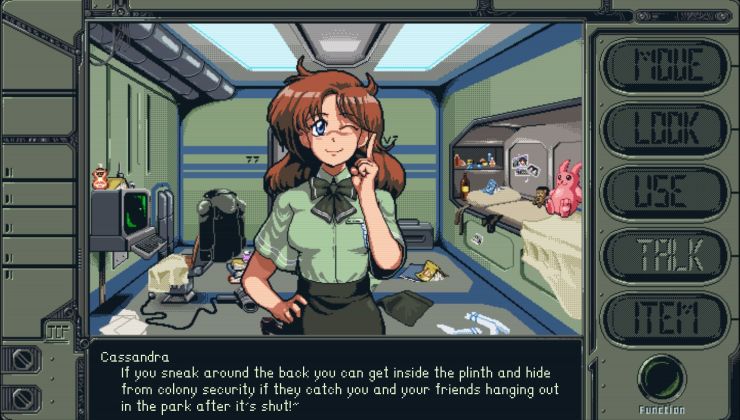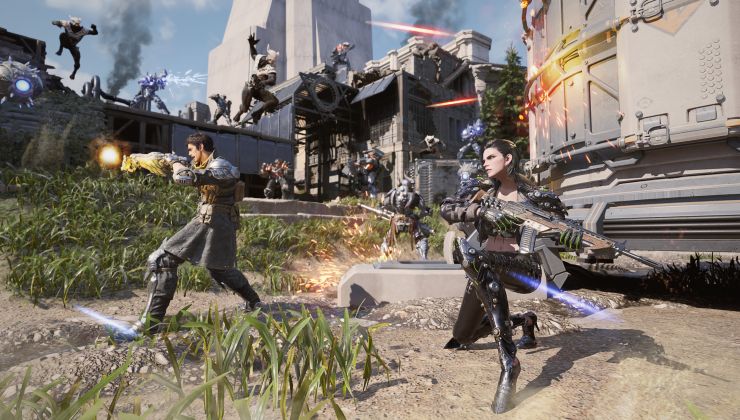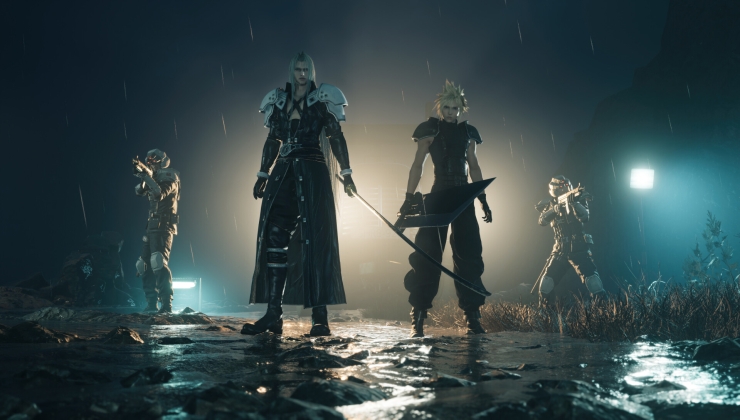In a recent update on the Steamworks Group on Steam, Valve gave an update on Steam Deck Verification and testing appears to be ramping up lately.
Valve confirmed in the post that they have already tested "thousands of titles" for Deck Verified. Their previous focus has been to prioritize titles based on playtime and interest from people who have reserved a Steam Deck, which appears to be an automatic process. They've also now given access to a small set of developers and publishers the ability to directly submit titles for review.
On top of that, they're beginning to increase the amount of titles going through verification, which makes sense considering we're getting close to the Steam Deck release on February 25.
Going by SteamDB, there's now 60 titles (as of publishing time) that are Deck Verified. Some of the most recent additions to this include: Baba Is You, Daymare: 1998, Hellish Quart, Death Trash, Paint the Town Red, Sam & Max Save the World, Roundguard and Wytchwood. There's a bunch that are also only noted as Playable, due to various issues like launchers, requiring the touch screen for initial setup and others. The number of games you can play with a few minor issues will be much larger overall.
Since they've tested thousands, they're of course not showing the entirety of what is actually Verified yet. Expect plenty more to suddenly appear over this month.
For example, I just confirmed that the transcoding issue of Marcus intro video from the Borderlands 3 wasn't fixed yet:
The original mp4 file has eight audio tracks, meanwhile the transcoded version only has english audio and that is unacceptable.
It seems Valve don't give a shit about this specific issue..
Nobody will buy this for just 100 or 200 supported games.Yeah, the Nintendo Switch only had 10 games available for it at launch, and we all remember how no one bought that thing!
…oh wait.
Well, the difference would be "You can play all of these ten thousands of games - oops, you can't" vs. "You can play ten games - yes, you can".
And Zelda.
My big concern about this are the WMV and MP4 videos used in a lot of videos.
For example, I just confirmed that the transcoding issue of Marcus intro video from the Borderlands 3 wasn't fixed yet:
The original mp4 file has eight audio tracks, meanwhile the transcoded version only has english audio and that is unacceptable.
It seems Valve don't give a shit about this specific issue..
Has it been reported on GitHub?
Also - Videos with english audio are a big improvement to videos not playing at all or even crashing the game. I personally still wonder why they wouldn't just use gstreamer if available, but well...My big concern about this are the WMV and MP4 videos used in a lot of videos.
For example, I just confirmed that the transcoding issue of Marcus intro video from the Borderlands 3 wasn't fixed yet:
The original mp4 file has eight audio tracks, meanwhile the transcoded version only has english audio and that is unacceptable.
It seems Valve don't give a shit about this specific issue..
Has it been reported on GitHub?
Also - Videos with english audio are a big improvement to videos not playing at all or even crashing the game. I personally still wonder why they wouldn't just use gstreamer if available, but well...
I imagine that doing that for the default Steam Deck may be as legally problematic as distributing MF libraries.
Bindings to gstreamer itself wouldn't be the problem and Proton isn't only on SteamDeck. Current behavior could still be the default, but if users install additional codecs, there's no reason not to use them.Also - Videos with english audio are a big improvement to videos not playing at all or even crashing the game. I personally still wonder why they wouldn't just use gstreamer if available, but well...
I imagine that doing that for the default Steam Deck may be as legally problematic as distributing MF libraries.
The whole codec situation is messy. They probably found a good enough solution that still lacks a litte in execution.
Last edited by const on 2 February 2022 at 5:10 pm UTC
Proton does not use your system libraries, it uses the Soldier runtime, Breaking out of the container and finding suitable system libraries for video would probably both be hard and something of a compatibility nightmare.
They could have licensed a proprietary H264 plugin for GStreamer but seems to have decided not to. This solution with re-encoding the videos does seem more cumbersome but it's probably better in the long run.
My big concern about this are the WMV and MP4 videos used in a lot of videos.
For example, I just confirmed that the transcoding issue of Marcus intro video from the Borderlands 3 wasn't fixed yet:
The original mp4 file has eight audio tracks, meanwhile the transcoded version only has english audio and that is unacceptable.
It seems Valve don't give a shit about this specific issue..
Has it been reported on GitHub?
Yes, by me.
And without an official answer.
Bindings to gstreamer itself wouldn't be the problem and Proton isn't only on SteamDeck. Current behavior could still be the default, but if users install additional codecs, there's no reason not to use them.Also - Videos with english audio are a big improvement to videos not playing at all or even crashing the game. I personally still wonder why they wouldn't just use gstreamer if available, but well...
I imagine that doing that for the default Steam Deck may be as legally problematic as distributing MF libraries.
The whole codec situation is messy. They probably found a good enough solution that still lacks a litte in execution.
I specifically mentioned the default Steam Deck because they can't install an unlicenced codec on there. And since only a fraction of the people would try to get one themselves, it's not an option for the Steam Deck.
That doesn't mean the team is manually testing each and every game. I just can't see how that would be practical or efficient. But of course, I don't have Valve money, so perhaps I lack the correct perspective.I just can't imagine Valve has a team dedicated to doing nothing but installing games on the Deck and making sure they work properly, especially not when they claim to have tested thousands of games already, which leads me believe that the process has a good deal of automation.Didn't they say at some point last year that they were hiring people to do just that? Though yes, there are certainly parts of it that could be automated (like "does it start on SteamOS 3.0 in the first place"); maybe they just need people to check things like the text size and controller glyphs and the like.
Fake edit: found it, from an interview with Greg Coomer and Lawrence Yang in Rock, Paper, Shotgun:
Steam does have a lot of games, and Valve is putting significant effort into this review program. We've hired an additional group of testers specifically for Steam Deck compatibility, and will continue to hire additional staff to support this group. It will take time to review the Steam catalog (in addition to the new titles that are being launched all the time), and we see some version of this process being in place for the foreseeable future.
That doesn't mean the team is manually testing each and every game. I just can't see how that would be practical or efficient. But of course, I don't have Valve money, so perhaps I lack the correct perspective.I mean, I doubt they have people 100-percenting every single game to check that there isn't an obscure mini-game that shows up 57 hours in where the text is too small to read. Even I would find that unreasonable. But a look at the official criteria shows that some (if not most) of those things would be virtually impossible to test in an automated fashion. Pretty much all games come as precompiled binaries with no API to allow automated testing of their internals, so checking most of those things would require practically a world-class AI that knows how to use controllers to open games and check things like whether an arbitrary game's menu is traversable with just a controller.
Whereas, for most games, a human could check off the verified criteria reasonably comfortably in less than an hour (with the caveat that maybe there's a place where text size gets too small or something else breaks later in the game, but for most games an hour should give a reasonably good idea). Assuming a single person can thus check 8 games a day (1/hour, 8-hour working day), by hiring 100 people (using the loose change found down the back of the sofas at Valve HQ) they could verify 800 games a day. That'd then take them 80 days to check all ~64,000 games on Steam. That's gotta be way easier than doing the Tesla-levels of machine learning that would be required to do that testing automatically. (They also don't have to allocate testing time equally, they could spend more time on the most popular games and push the least popular ones off until after launch.)








See more from me